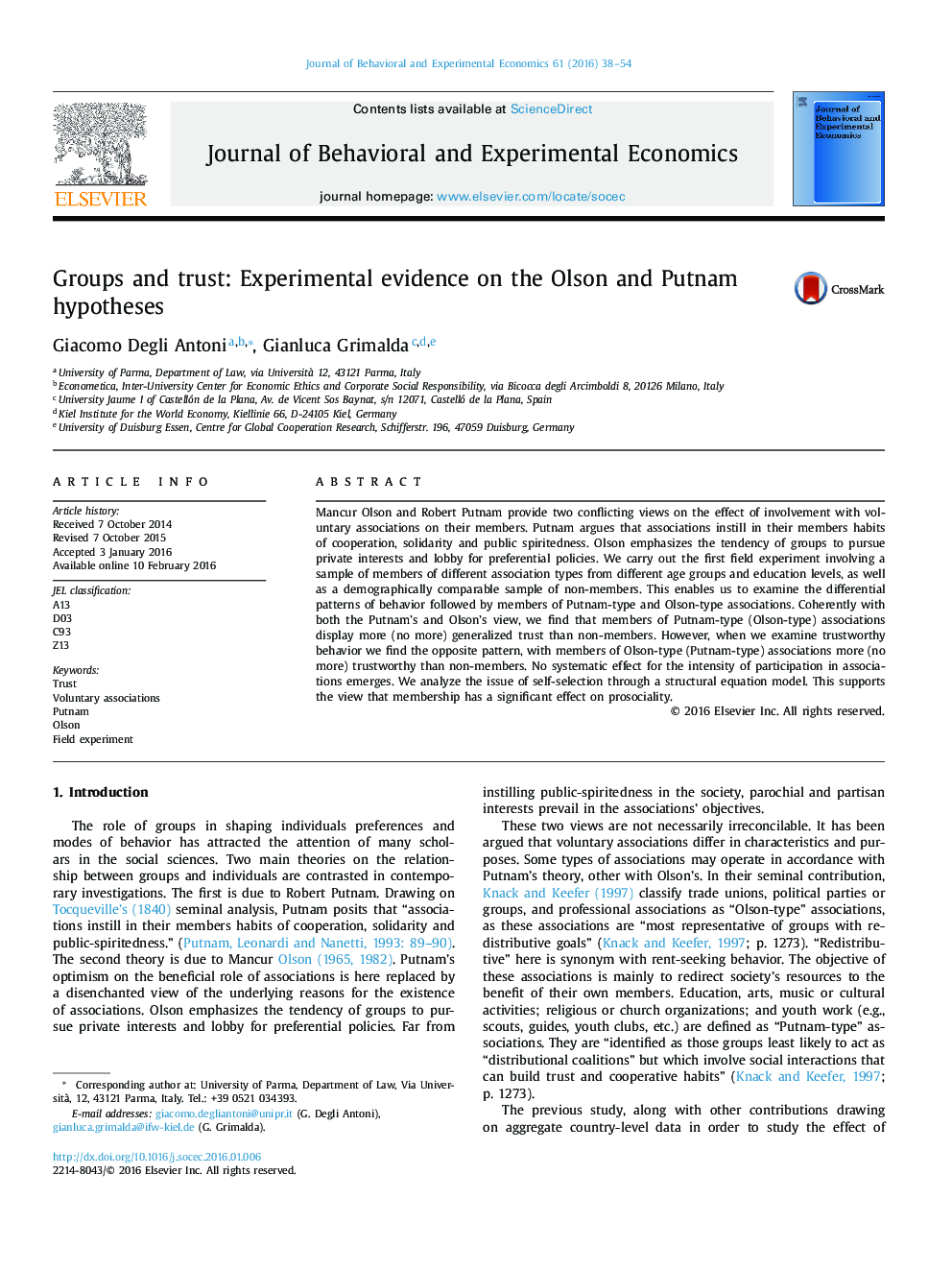| کد مقاله | کد نشریه | سال انتشار | مقاله انگلیسی | نسخه تمام متن |
|---|---|---|---|---|
| 881799 | 1471553 | 2016 | 17 صفحه PDF | دانلود رایگان |
• We run a Trust Game on members of different types of associations and non-members.
• Members of Putnam-type associations display more generalized trust than non-members.
• Members of Olson-type associations display no more generalized trust than non-members.
• The opposite pattern emerges when trustworthiness is analyzed.
• The causality issue is discussed through a structural equation model.
Mancur Olson and Robert Putnam provide two conflicting views on the effect of involvement with voluntary associations on their members. Putnam argues that associations instill in their members habits of cooperation, solidarity and public spiritedness. Olson emphasizes the tendency of groups to pursue private interests and lobby for preferential policies. We carry out the first field experiment involving a sample of members of different association types from different age groups and education levels, as well as a demographically comparable sample of non-members. This enables us to examine the differential patterns of behavior followed by members of Putnam-type and Olson-type associations. Coherently with both the Putnam's and Olson's view, we find that members of Putnam-type (Olson-type) associations display more (no more) generalized trust than non-members. However, when we examine trustworthy behavior we find the opposite pattern, with members of Olson-type (Putnam-type) associations more (no more) trustworthy than non-members. No systematic effect for the intensity of participation in associations emerges. We analyze the issue of self-selection through a structural equation model. This supports the view that membership has a significant effect on prosociality.
Journal: Journal of Behavioral and Experimental Economics - Volume 61, April 2016, Pages 38–54
